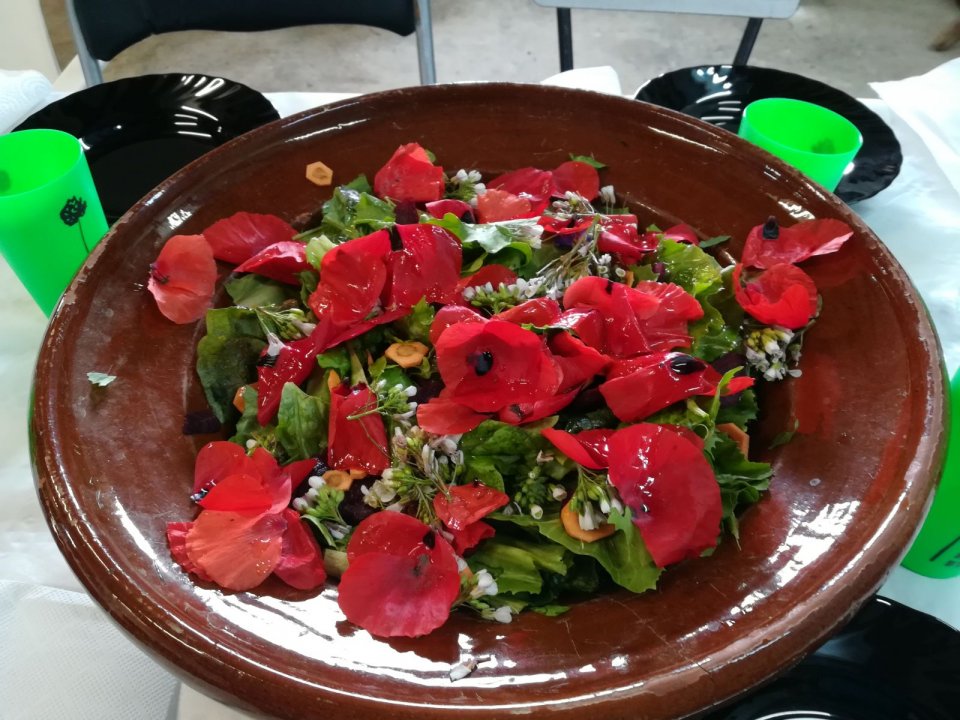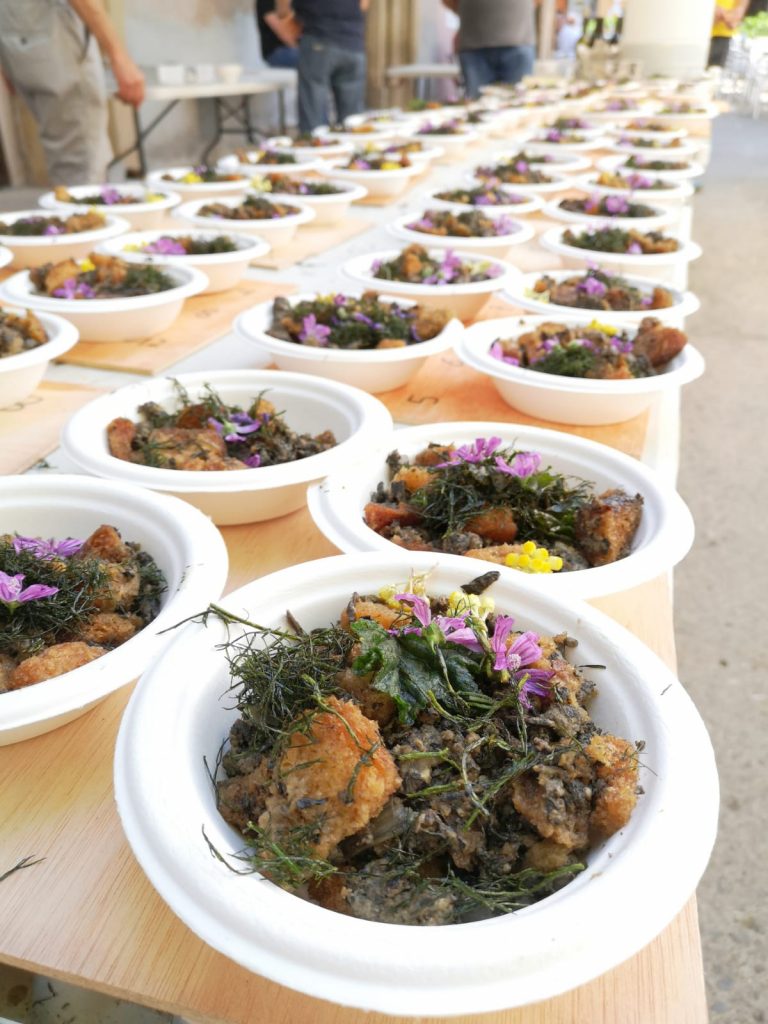
Wild species must be recovered and their uses incorporated daily as normal. We must document the traditional uses of vegetation and promote actions aimed at citizens to publicise them. The research and dissemination axes are essential, but they must be accompanied by the development of business models that also allow the commercialisation of products. In Catalonia (Spain) there are several associations and companies that work to value them, either in the gastronomic field or as a tourist activity.
Food is not only nourishing but also drinking, seasoning and preserving. The role of wild plants in food, linked to local popular knowledge, is still relevant in Catalonia. A Ratafia, traditional liquor from Catalonia, contains more than 100 different plants. The coscoll (Molopospermum peloponnesiacum) or the xicoina (Taraxacum dissectum) are much appreciated as a salad. Thyme soup (Thymus vulgaris or Th. serpyllum) is common in every house. The wild species that in a context is a weed, can be useful and should not be forgotten or belittled.
In Catalonia, the "Eixarcolant" collective recovers the traditional uses of vegetation, through research, product development and dissemination, organizing the "Gastronomic Day of Forgotten Plants". There are other fairs dedicated to herbs with a relevant role of culinary uses: "Forgotten Fruits and Herbs of Catalonia" (ARÇ day), the "Spice Market", "Remeiart", or the "Ratafia Herbs Market". And private initiatives: "Els Corremarges" promote wild foods, "Espècies a mà" produces wild salt, "La Calendula" restaurant offers a kitchen inspired by herbs and fruits collected daily, and "Naturalwalks" develops ecotourism and consulting activities to restaurants and catering schools.
We must make known the food uses of wild plants in the most experiential way possible, through tastings and workshops aimed at citizens, and exchanges between professionals, producers and technicians to create synergies that guarantee the knowledge, recovery and application of herbs and wild fruits in different fields and sectors. Apart from valuing the rich gastronomic tradition, it is necessary to promote healthy eating and new culinary uses. Thus, the recovery of ethnobotanical knowledge can serve as inspiration for the development of innovative products.
Wild plants are products that we rarely imagine having food use, either they are considered low quality products or they can paradoxically be elitist products outside the consumer's supply. Therefore, it is understandable that it is difficult to enter the population schemes to incorporate them into a diet.
It is necessary to continue documenting the traditional uses of vegetation, wild species and traditional varieties, used in food, for the cultural and natural heritage they represent and as an essential base from which to achieve the real recovery of these uses, species and varieties, duly adapted to the current socioeconomic context. The dissemination actions must go in this direction, but it is also necessary to make available to the consumer quality products that maintain environmental, social and economic sustainability at all stages of the process.
Eva Moré Palos, eva.more@ctfc.cat, http://apsb.ctfc.cat
Further information
Garnatje, T.; Muntané, J.; Parada, M.; Rigat, M.; Vallès, J. Plantes alimentàries del Pirineu català. Ed. Farell. 2012.
Col·lectiu Eixarcolant https://eixarcolant.cat/
ARÇ - Diada Fruits i Herbes Oblidades https://www.facebook.com/Diadafruitsoblidats/
El Mercat de les espècies http://www.eltrill.org/mercat-deles-especies/
Remeiart http://remeiart.cat/
Mercat de les herbes de la Ratafia http://ratafia.cat/
Espècies a mà https://www.facebook.com/EspeciesaMa
Els Corremarges https://elscorremarges.wordpress.com
La Caléndula https://www.iolandabustos.com/
https://www.lavanguardia.com/comer/siguela/20190508/462097278689/iolanda...
Naturalwalks http://naturalwalks.com/
Wild edible herbs salad. Roser Cristóbal -CTFC-

Tasting of meals made with wild vegetation during Gastronomic Day of Forgotten Plants in Igualada (Catalonia), organized by the "Eixarcolant" group.
